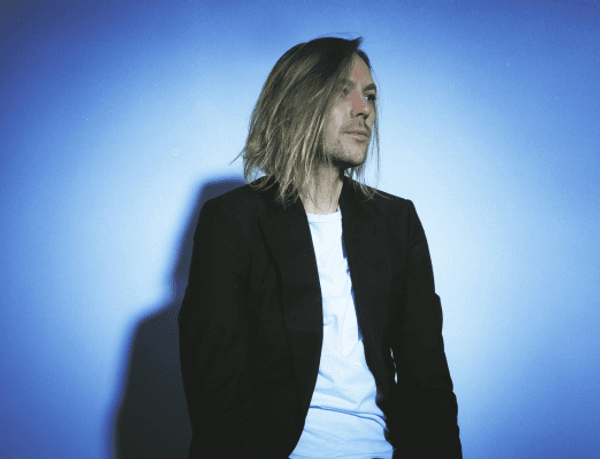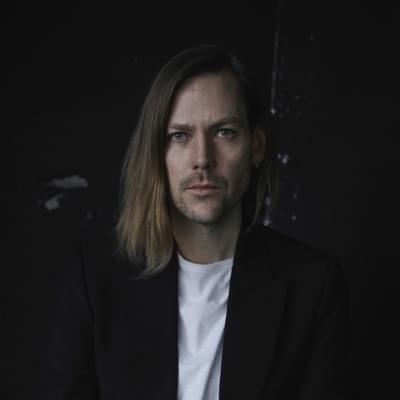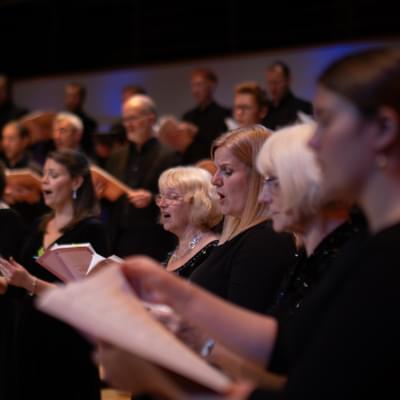Northern Lights

Full programme:
- Ólafur Arnalds (arr. Geoff Lawson), Momentary (3mins)
- Jóhann Jóhannsson (arr. Robert Ames), Kanguru (3mins)
- Hildur Guðnadóttir (arr. Robert Ames), For Petra (8mins)
- Jóhann Jóhannsson (arr. Weeden), Arrival Suite No.1 (9mins)
- Hildur Guðnadóttir (arr. Robert Ames), Ascent (6mins)
- Olafur Arnalds, Og Lengra (4mins)
- Jonsi & Alex Somers (arr. David Handler), Boy 1904 (5mins)
- Björk (arr. Anderson), Jóga (5mins)
- Kjartan Sveinsson, Der Klang Der Offenbarung des Göttlichen (35mins)
Performers

Robert Ames
Conductor
Ex Cathedra
Introduction
Welcome to Northern Lights, an evening of music from Iceland. I am delighted to welcome you on behalf of the musicians of the City of Birmingham Symphony Orchestra and Ex Cathedra, with whom I am performing for the first time this evening.
As an island, Iceland has cultivated a rare culture of friendliness and connection, which perhaps accounts for the extraordinary influence of Icelandic aesthetics on the artistic life of the world. I have witnessed this unique blend of warmth and brilliance first-hand, having had the privilege of working with Ólafur Arnalds, Jónsi & Alex Somers, Hildur Guðnadóttir, and Sigur Rós in recent years.
This evening, I am thrilled to be joined by the singers of Ex Cathedra as we present Kjartan Sveinsson’s Der Klang Der Offenbarung des Göttlichen live in the UK for the first time. Based on World Light by Nobel laureate Halldór Laxness, the novel follows the journey of a foster child who believes he will become a famous poet. Sveinsson has masterfully divided the story into three main phases: departure, initiation, and return. The result is music that is both genuine and deeply evocative, capturing the essence of the novel’s themes of self-discovery, ambition, and the search for meaning.
Sveinsson’s intricate textures and sweeping emotional arcs create a sound world that is at once introspective and expansive. It’s music that invites deep reflection, drawing you into the protagonist’s world while offering a fresh and profound listening experience.
Jóhann Jóhannsson's Kanguru is an iconic piece of cinematic music, and it’s no exaggeration to say that his approach has redefined how many of us think about film music—and who can make it. This piece, in particular, has a rare ability to burrow into your emotions, leaving an imprint that stays with you long after the music fades.
We hope you enjoy the evening.
Robert Ames
Conductor
Programme Notes
Musicians in Iceland certainly don’t have much time for the boundaries between classical music and other genres - from soundtracks to pop to heavy metal. Come and hear how that works in this fantastic programme of modern Icelandic music, curated by boundary-pushing conductor and composer Robert Ames, which includes works by musicians from Sigur Rós and composer of The Joker and Tár soundtracks, Hildur Guðnadóttir.
In November 2023, the entire population of Grindavík in south west Iceland was evacuated at short notice. The Sundhnúkur volcano, some two miles away from the town, was showing alarming signs of activity: there were earthquakes, and smoking fissures opened up in residential streets. The eruption, when it came, sprayed lava 100 metres into the air, while streams of molten rock blocked roads and even threatened Iceland’s biggest tourist attraction, the Blue Lagoon geothermal spa. In Iceland, this was business as usual.
But then, Iceland isn’t like any other European country. It was thrust from the freezing North Atlantic by volcanic activity long after the other continents were getting old, and it still shows the scars of its creation – a process that is far from over. Humans settled permanently only in the 9th century, and Iceland achieved independence from colonial rule only during the Second World War. The national delicacies of sheep’s head, salt cod and fermented shark tell their own tale of lives lived at the outer limits of the inhabited world.
So yes, it’s a new country, and its musical life is youthful too. Well, sort-of: the tradition of poetic singing, or rímur dates back to the middle ages. Icelandic culture is grounded in verbal narratives, from the great Sagas of the Viking era and the hymns and poems of the church to the novels of Iceland’s first Nobel laureate, the author Halldór Laxness.
Laxness showed the world an Iceland that was both ancient and startlingly modern: a place where dirt-poor shepherds grappled with changing values, and dodgy politicians locked horns with fishermen who traced their descent from Sigurd the Dragon Slayer. His best-known novel Independent People (1935) portrays an almost medieval world; yet Laxness lived long enough to appear in the pages of 101 Reykjavik, Hallgrímur Helgason’s cult novel of Reykjavík’s millennial party scene.
Reykjavík is a big part of the Iceland we know today; the hip, irrepressibly quirky capital city, perched between the ocean and a vast, primal wilderness. It’s by far the largest settlement in Iceland, though it’s still only the size of Gloucester - this is a society which does not use surnames. It’s an unpretentious city; deliciously cosy on a dark winter day, and uninhibited by night (and a night out in Reykjavík really does last until dawn). But it’s also a city of originals – outsider artists, philosophers, and extroverted introverts; the sort of town (as a local writer once observed) where a superstar like Björk, could walk down Laugavegur in her famous swan dress and no-one would look twice.
Singing on the Volcano
So what about music? When, a couple of years before the financial crash of 2008, I first visited 12 Tónar - Reykjavík’s leading record store, and the unofficial HQ of Iceland’s independent music scene – the proprietor jumped out at me, crowing, from behind a stuffed raven. Then (once I’d recovered from the shock) he offered me a mug of strong coffee while I browsed. They do things differently here. Orchestral musicians moonlight in rock and folk bands, and the deep national tradition of communal and solo singing underpins every note.
Perhaps that’s why the generation of Icelandic musicians that has emerged since the Millennium has achieved such unprecedented global success. They’re used to being resourceful, to collaborating, and blurring boundaries. The human voice plays a large role in their music, and it’s tempting to hear Iceland’s vast spaces, seismic forces and overcast skies in the sounds they create. There’s a fierce individuality, too, expressed in ways that are both bold and playful (in their 2007 road movie Heima, Sigur Rós collaborated with a rural musician who had constructed his own marimba from dried rhubarb).
Somehow, from these wildly different elements, the musicians of this bare, explosive island have found a language that speaks to the 21st century world. No two Icelandic composers are alike, and yet they all address the same unavoidable questions. How to sing your own song in one of Europe’s most closely-knit societies. The role of human emotions in the presence of an overwhelming – sometimes overpowering – nature. And above all, how to be a creator, in a land where Creation itself is a work in progress.
The Music
Jóhann Jóhannsson (1969-2018)
“I try to make music that doesn’t need layers of complexity or obfuscation to speak to people” said Jóhann Jóhansson in an interview shortly before his untimely death in 2018 at the age of 48. “Music should resonate with people on an emotional level.” The son of a Reykjavík computer engineer, his career took him from a childhood love of the trombone to Reykjavík’s 1990s indie scene, and on to dazzling international success, with film credits including The Theory of Everything. We’ll hear two extracts from his score for Denis Villeneuve’s 2016 science fiction epic Arrival.
Hildur Guðnadóttir (b.1982)
With her score for the 2019 Batman blockbuster Joker Hildur Guðnadóttir made history – she became Iceland’s first ever Oscar winner. Music came naturally to her. “It’s truly what we did when we were growing up in Iceland” she explains. “Everyone in my family was musicians”. She played the cello in both classical and rock groups, sang in a local choir, and has gone on to release numerous solo albums, as well as composing original scores for movies including Journey’s End and the 2024 Joker sequel Folie à Deux. For Petra is a haunting miniature from Tár (2022) and Ascent comes from her 2009 studio album Without Sinking – on which Hildur herself played the cello.
Ólafur Arnalds (b.1986)
Best known as a pianist and composer, Ólafur is also a rock drummer with a passion for Chopin. With his soundtracks for TV series including Broadchurch, he’s made a major impact, though he says that “I'm way more interested in creating art for art's sake”, and he regularly performs live. momentary comes from his 2018 solo album Re:member, while …og Lengra (“And Beyond”) is part of Dyad 1909, a ballet score composed for the choreographer Wayne McGregor in 2009. It’s a very personal reinvention of the Romantic style from a composer whose aim, he says, is “to open people’s minds”.
Jónsi and Alex Somers
Jón Þór Birgisson (b.1975) – better known as Jónsi – is the extraordinary vocalist and multi-instrumentalist who defined the sound of Icelandic post-rock giants Sigur Rós. But being an Icelander, he didn’t stop there. Riceboy Sleeps, his 2009 album with his then-partner, the American musician-producer Alex Somers, featured the experimental folk band Amiina, a string quartet and a choir. Oh, and a remixed track recorded in 1904 by the last castrato Alessandro Moreschi, singing Catholic liturgy (the Properia). The result, in Boy 1904, could be from no-one – and nowhere – else.
Kjartan Sveinsson (b.1978)
Kjartan is the former keyboard player of Sigur Rós, though he also plays flute, tin whistle, oboe and banjo, and has a growing reputation as a composer. He describes Der Klang Der Offenbarung des Göttlichen as an opera, but this powerful orchestral and vocal meditation on Halldór Laxness’s 1937 novel World Light has no characters and no specific action, and it was staged in Berlin in 2014 against the dark, expressionistic landscape paintings of Ragnar Kjartansson.
The title means “The Explosive Sonics of Divinity”, and the opera is divided into four acts, with no explicit plot. Beneath it all lies Laxness’s allegorical tale of an eccentric would-be poet in an unforgiving Icelandic fishing community: a soul yearning for transcendence in the harshest of conditions:
You are the light of the world.
Soon the sun of the day of resurrection will shine on the bright paths where she awaits her poet.
And beauty will reign alone.
© Richard Bratby